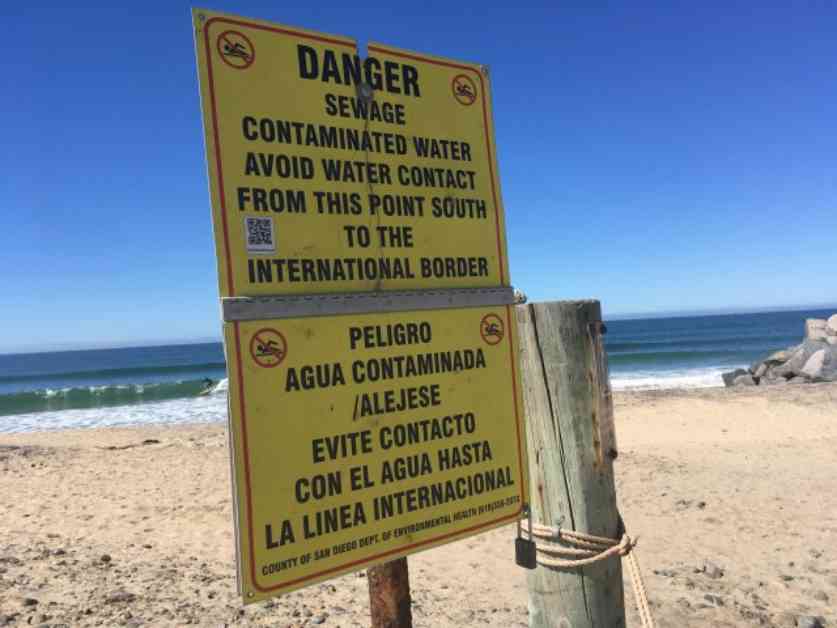The Centers for Disease Control and Prevention (CDC) will be conducting a health survey in South Bay, California, to gather information on the impact of the Tijuana sewage crisis on local residents. This survey will take place on October 17-19, 2024, and will involve representatives from San Diego County and the CDC visiting randomly selected homes in the area.
The survey, known as the Community Assessment for Public Health Emergency Response (CASPER), aims to understand the health concerns and effects of sewage and pollution from the Tijuana River Valley. A total of 210 interviews will be conducted, with approximately seven households per block participating in the 15-minute survey. The survey will be voluntary, in-person, and anonymous.
Residents in the South Bay region have been facing pollution issues for years, with parts of the Imperial Beach shoreline being closed for over 1,000 days due to pollution levels. The pollution, which includes untreated sewage, sediment, and trash, originates from sewage treatment plants in Mexico, capacity issues at U.S.-operated treatment plants, and increased water flow during rainstorms.
Since September 2023, the Public Health Services department in San Diego County has been monitoring an increase in gastrointestinal illnesses in the region. In response to the pollution crisis, the County Board of Supervisors declared a state of emergency in May 2024 and is actively seeking federal funding for infrastructure repairs. Residents have also received air purifiers to combat odor issues.
Additionally, a task force led by the mayor of Imperial Beach has been established to conduct long-term health studies in collaboration with San Diego State University and the University of California, San Diego. The results of the CDC’s health survey will be published, providing valuable insights into the impact of the sewage crisis on South Bay residents.
On the other side of the border, Baja California officials are working on a new wastewater treatment plant that is expected to reduce the amount of sewage entering the ocean once completed. This plant aims to address the pollution issue at its source and improve the environmental and public health situation in the region.


